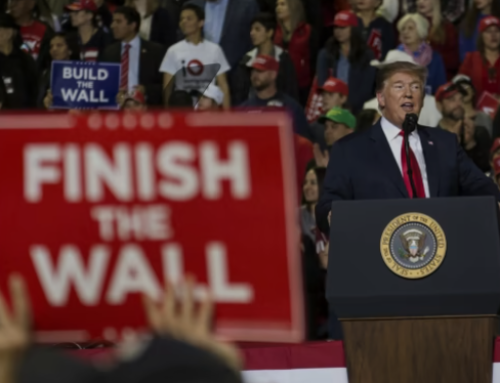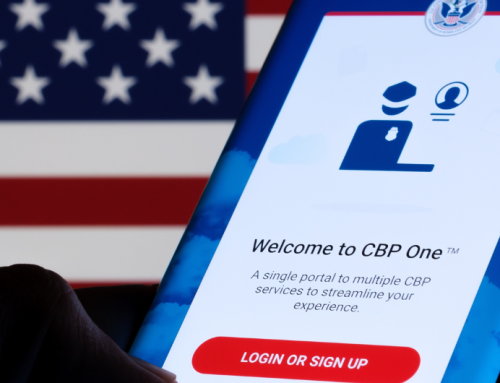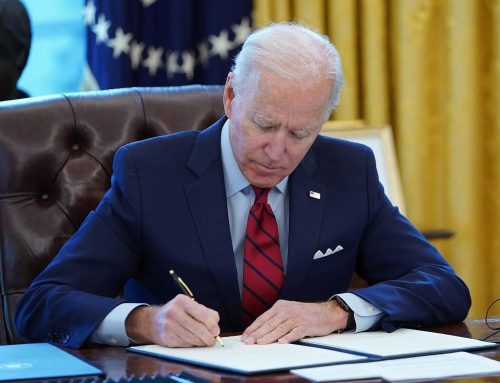Immigration Creates US Jobs
Immigration creates jobs for native-born Americans, a new report finds. Immigration does not reduce employment among U.S.-born population; instead, foreign-born workers “complement” U.S.-born workers. Immigrants and natives have different skills, and immigration diversifies the workforce. Immigration results in more productive companies, stronger economic growth, and higher employment among U.S. natives.
The study, “Immigration and American Jobs”, released in December 2011 by American Enterprise Institute for Public Policy Research, explores the link between immigration and employment among U.S. natives. The study focuses on two groups most frequently identified by policymakers and employers as vital to America’s economy: foreign-born adults with advanced degrees and temporary work visa holders. In trying to establish whether these groups help or hurt job prospects among U.S. natives, the study uses hard numbers – annual data from the U.S. Census Bureau and applications for temporary workers – to perform a state-level comparison that answers the question, “In states with more immigrants, are U.S. natives more or less likely to have a job?” The study also looks at the fiscal effect of the foreign born by comparing the benefits they receive to the taxes they pay.
The analysis yields four main findings:
- Immigrants with advanced degrees boost employment for U.S. natives. This effect is most dramatic for immigrants with advanced degrees from US universities working in science, technology, engineering, and mathematics (STEM) fields. The data comparing employment among the fifty states and the District of Columbia show that from 2000 to 2007, an additional 100 foreign-born workers in STEM fields with advanced degrees from U.S. universities is associated with an additional 262 jobs among U.S. natives. While the effect is biggest for U.S.-educated immigrants working in STEM, immigrants with advanced degrees in general raised employment among U.S. natives during 2000–2007:
- An additional 100 immigrants with advanced degrees in STEM fields from either U.S. or foreign universities is associated with an additional 86 jobs among U.S. natives.
- An additional 100 immigrants with advanced degrees – regardless of field or where they obtained their degrees – is associated with an additional 44 jobs among U.S. natives.
- Temporary foreign workers, both skilled and less skilled, boost U.S. employment. The data show that states with greater numbers of temporary workers in the H-1B program for skilled workers and H-2B program for less-skilled nonagricultural workers had higher employment among U.S. natives. Specifically:
- Adding 100 H-1B workers results in an additional 183 jobs among U.S. natives.
- Adding 100 H-2B workers results in an additional 464 jobs for U.S. natives.
- For H-2A visas for less-skilled agricultural workers, the study found results that were positive, but data were available for such a short period that the results were not statistically significant.
- The analysis yields no evidence that foreign-born workers, taken in the aggregate, hurt U.S. employment. Even under the current immigration pattern – which is not designed to maximize job creation, has at least eight million unauthorized workers, and prioritizes family reunification – there is no statistically significant effect, either positive or negative, on the employment rate among U.S. natives. The results thus do not indicate that immigration leads to fewer jobs for U.S. natives.
- Highly educated immigrants pay far more in taxes than they receive in benefits. In 2009, the average foreign-born adult with an advanced degree paid over $22,500 in federal, state, and Federal Insurance Contributions Act (FICA, or Social Security and Medicare) taxes, while their families received benefits one-tenth that size through government transfer programs like cash welfare, unemployment benefits, and Medicaid.
In light of these findings, the report’s author Madeline Zavodny proposes the following policy changes that would boost job creation:
- Giving priority to workers who earn advanced degrees from U.S. universities, especially those who work in STEM fields. The results show that the most dramatic gains in U.S. employment come from immigrants who earned advanced degrees at U.S. universities and are employed in STEM fields. Changing permanent and temporary immigration policies to favor holders of advanced degrees from U.S. universities in STEM fields is an obvious step given the demand for highly skilled workers and the extensive investment the country already makes in such students. Without a clear path to stay in the United States, these foreign students will fuel innovation and economic growth in countries that compete with the American economy.
- Increasing the number of green cards (permanent visas) for highly educated workers. This study shows that foreign-born workers with advanced degrees create more jobs for U.S. workers than immigrants overall. Yet only 7% of green cards are currently awarded to workers based on their employment. The United States can increase the number of immigrants with advanced degrees in the U.S. workforce by increasing the number of green cards distributed through employment-based categories.
- Making available more temporary visas for both skilled and less-skilled workers. The study’s findings suggest that expanding the H-1B program for skilled temporary foreign workers would increase employment for U.S. natives. Similarly, this study suggests that the H-2B program for seasonal, less-skilled workers in fields other than agriculture leads to significant employment gains for U.S. natives. But both these programs are severely limited under current law. Only 85,000 H-1B visas and 66,000 H-2B visas are available each fiscal year, and the process for obtaining H- 2B visas is often prohibitively difficult and costly.
The report concludes: “Action is required if America is to get back to work. Immigration policy can, and should, be a significant component of America’s economic recovery. Targeted changes to immigration policy geared toward admitting more highly educated immigrants and more temporary workers for specific sectors of the economy would help generate the growth, economic opportunity, and new jobs that America needs.”
Attorneys at I.S. Law Firm have helped many foreign-born workers to obtain work visas, adjust their status, and become permanent residents and citizens. To explore your immigration options, please contact us: +1-703-527-1779 or via e-mail: [email protected].






